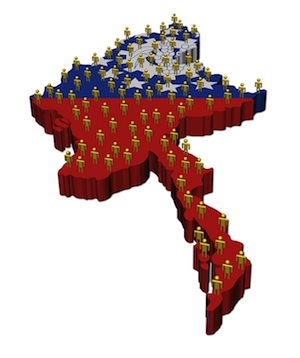The Myanmar government has rejected claims that it is responsible for efforts to hack into the email accounts of foreign and local journalists working in the country.
According to reports, at least 12 reporters received messages from Google last week when they tried to access their Gmail accounts that alerted them to possible attempts by hackers to compromise their account.
Google began issuing warnings along these lines in 2012 in response to state-sponsored attacks targeting Gmail users. Allegations of such tactics have grown during the past few years.
 In January 2010, Google revealed what became known as Operation Aurora, a cyber-attack targeting a number of high-profile companies. The cyber-attack, which actually began in mid-2009 and continued through December of that year, originated in China – a country that has been at the center of many allegations of cyber-espionage against the United States.
In January 2010, Google revealed what became known as Operation Aurora, a cyber-attack targeting a number of high-profile companies. The cyber-attack, which actually began in mid-2009 and continued through December of that year, originated in China – a country that has been at the center of many allegations of cyber-espionage against the United States.
More recently, The New York Times, Wall Street Journal and The Washington Post all revealed that they had been targeted in a cyber-espionage campaign believed by many to have perpetrated by Chinese hackers.
According to the Associated Press, Myanmar presidential spokesman Ye Htut said it is against the government’s policy to engage in hacking, and that that there had been no state-sponsored attack.
Htut also called on Google to identify those responsible “because the vague reference to state-sponsored attackers hurts the image of the government.”
According to Eleven Media Group, its chief editor, Wai Phyo, and other news editors at Eleven Media Group received notifications from Google as well; so did The Voice Weekly Journal’s editor Aung Soe and Myat Thura, a Myanmar correspondent for the Kyodo News Agency. A reporter for The Associated Press received a warning as well.
“The Myanmar situation reminds us that cloud applications by themselves lack controls for securing sensitive information,” said Pravin Kothari, founder and CEO of CipherCloud. “One of the best ways for organizations using cloud applications to protect themselves from hacktivist and state-sponsored hacks is to encrypt their data before it’s sent to the cloud and to retain the keys.”














